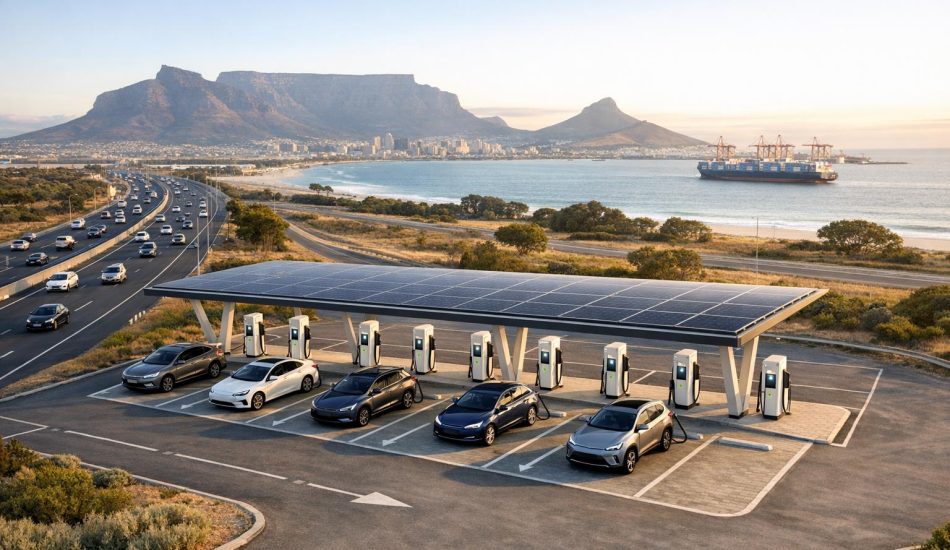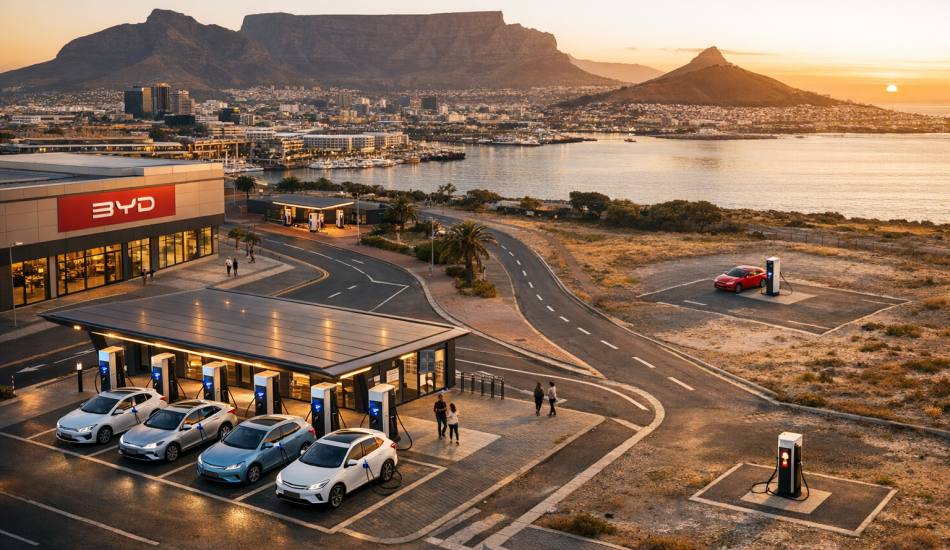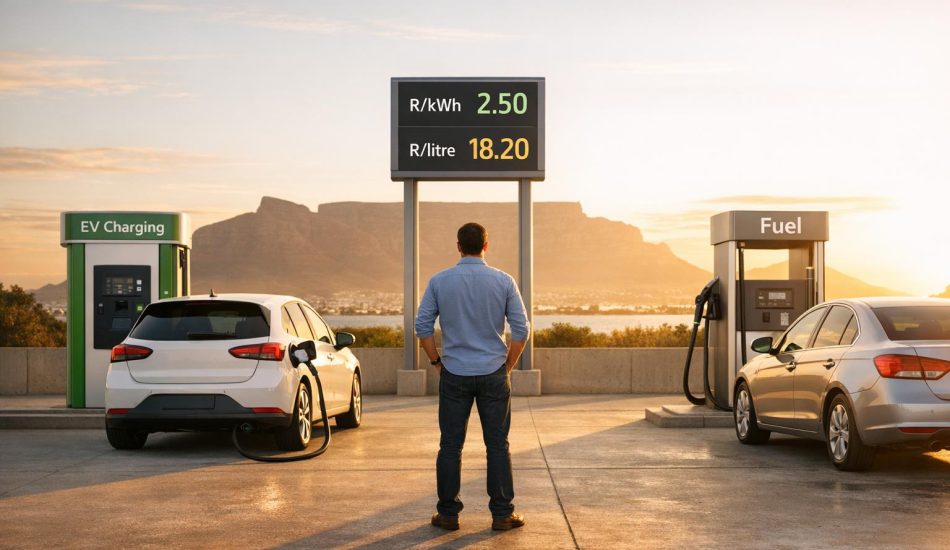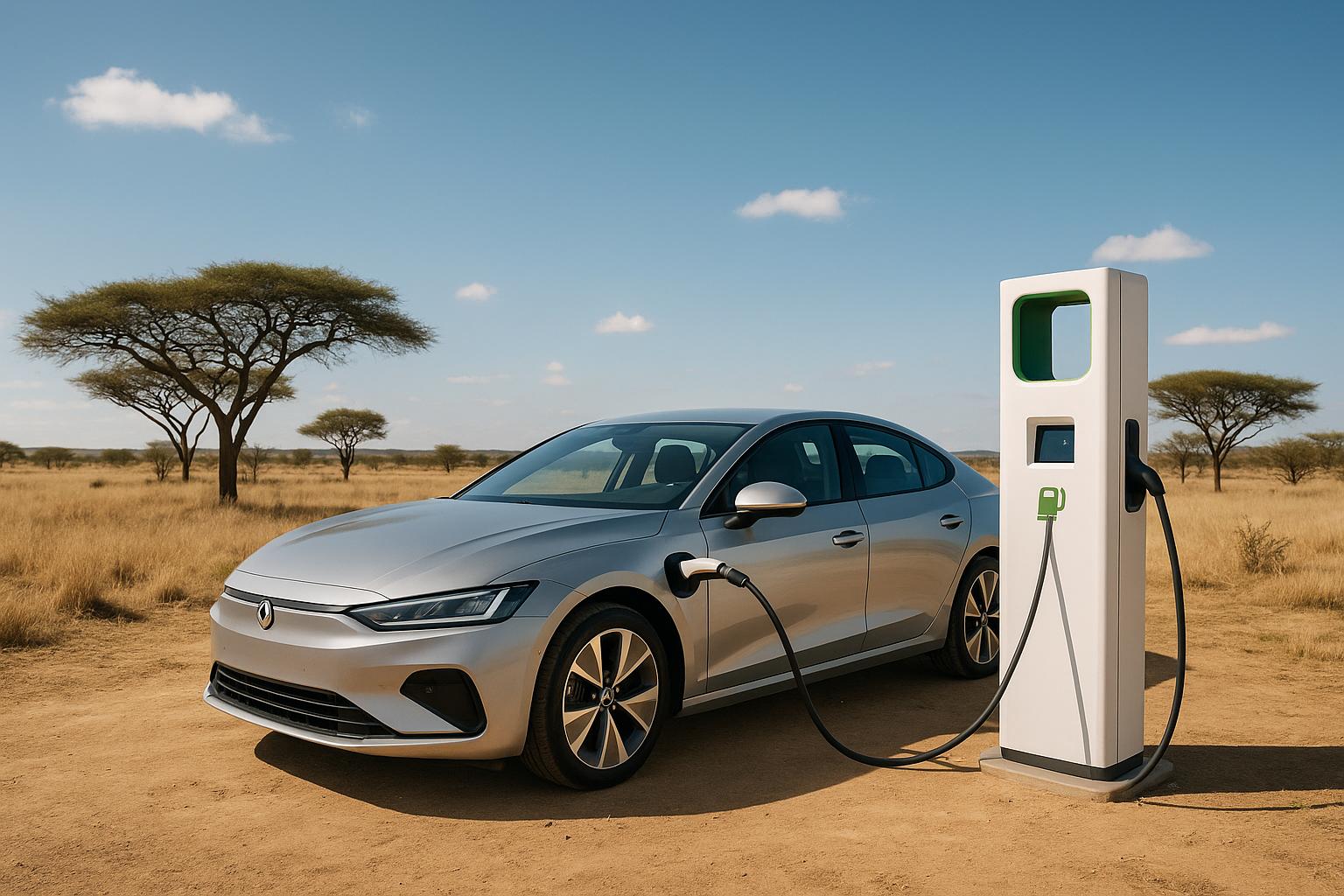
Owning an electric car in South Africa can save money on fuel and maintenance while reducing emissions. However, challenges like load-shedding, limited charging stations, and high upfront costs remain significant. Gas cars are cheaper initially, have a reliable fueling network, and are unaffected by power outages, but they come with higher long-term maintenance costs and environmental drawbacks.
Key Points:
- Electric Cars: Lower running costs, fewer emissions, but expensive upfront and reliant on limited charging infrastructure.
- Gas Cars: Affordable upfront, easy to refuel, but higher maintenance costs and ongoing environmental impact.
Quick Comparison:
| Criteria | Electric Cars | Gas Cars |
|---|---|---|
| Cost | High upfront, low running costs | Lower upfront, higher maintenance costs |
| Infrastructure | Limited charging stations | Extensive fueling network |
| Load-Shedding Impact | Charging disrupted during outages | Unaffected |
| Environmental Impact | Fewer emissions (depends on energy mix) | High emissions from fuel combustion |
| Range | Limited (96–160 km per charge) | Long (up to 643 km per tank) |
If you mostly drive in cities and can charge at home, an electric car is a forward-thinking option. For long trips or areas with frequent power outages, a gas car may be more practical. Choose based on your driving habits and current infrastructure.
1. Owning an Electric Car in South Africa
Cost
When it comes to owning an electric car in South Africa, the financial picture is a mix of upfront expenses and potential savings over time. The initial cost of an electric vehicle (EV) is higher, mainly due to import duties and the lack of local production. However, these vehicles tend to have lower running costs, thanks to their energy efficiency and reduced maintenance needs.
Depreciation is another factor to consider. While EVs in global markets often face steep depreciation, South Africa’s limited supply and growing interest in electric mobility could help maintain more stable resale values. These cost considerations are closely tied to the availability of charging infrastructure and the practicalities of EV ownership.
Infrastructure and Practicality
Charging infrastructure in South Africa is improving, especially in cities like Cape Town, Johannesburg, and Durban. However, rural areas still face significant gaps. For most EV owners, home charging is the norm, with overnight charging typically covering daily needs. Longer trips, though, require careful planning due to range limitations and the slower speed of public fast-charging compared to filling up a gas tank.
One of the unique challenges in South Africa is load-shedding, which can disrupt charging schedules. Many EV owners have turned to backup solutions, such as solar power systems or battery storage, to ensure consistent charging.
Impact on Environment
Electric vehicles are often seen as a greener alternative to traditional gasoline cars, primarily because they produce fewer emissions over their lifespan. However, the environmental benefits in South Africa depend heavily on the country’s energy mix. With a large portion of electricity still generated from coal, the carbon footprint of EVs can vary. That said, integrating solar power with EV ownership offers a way to significantly reduce emissions.
It’s also worth noting that importing EVs adds transportation-related emissions. Even so, the efficiency and longer lifespan of these vehicles help offset these initial environmental costs, making them a more sustainable choice in the long run. These environmental advantages align with policy goals aimed at promoting a shift toward electric mobility.
Government Policies
The South African government has introduced various measures to encourage EV adoption. These include reduced import duties and perks like preferential parking and lower registration fees in certain municipalities. Businesses investing in electric fleets can also benefit from tax incentives, such as accelerated depreciation.
That said, direct financial incentives for individual buyers remain limited. As the government continues to refine its targets for EV adoption and infrastructure development, staying informed about new policies can help prospective buyers make better decisions about transitioning to electric vehicles.
2. Owning a Gas Car in South Africa
Cost
Gas-powered vehicles in South Africa are known for their affordability, with both new and used options widely available. Their upfront cost is generally lower compared to electric vehicles, making them an attractive choice for many buyers.
While fuel prices can fluctuate, they remain straightforward and transparent at the pump. However, maintenance costs for gas cars tend to add up over time. This is due to the complexity of internal combustion engines, which require regular oil changes and have more moving parts prone to wear and tear. On the bright side, mechanics and spare parts are easy to find, which keeps repair costs relatively competitive.
Depreciation is another factor to consider. Gas vehicles typically follow predictable patterns in value loss, which helps owners estimate resale prices more accurately. Combined with South Africa’s extensive fueling network, these cost factors make gas cars a practical choice.
Infrastructure and Practicality
South Africa’s fueling network is extensive, with nearly 5,000 fuel stations spread across urban areas, rural regions, and major highways. This makes finding a gas station incredibly convenient, whether you’re commuting in the city or embarking on a long road trip.
Refueling is also quick and efficient. Filling up a gas tank takes just a few minutes, a stark contrast to the 20 minutes needed to charge an EV for 100 km of range or the 45 minutes required for a full charge. For those with tight schedules or long distances to cover, this time savings is a significant advantage.
Gas vehicles also have the edge when it comes to driving range. Depending on the engine’s efficiency and tank size, most gas cars can travel around 400 miles (643 km) on a full tank. In comparison, many EVs typically offer a range of 60–100 miles (96–160 km) per charge.
Another key consideration is load-shedding, a common issue in South Africa. While EVs depend on the availability of electricity for charging, gas cars are unaffected by power outages. Many fuel stations are equipped with backup generators, ensuring that refueling remains uninterrupted even during blackouts. This reliability makes gas cars particularly practical for daily use and long-distance travel.
Impact on Environment
Gas cars, while convenient, come with a significant environmental cost. They burn fossil fuels, releasing carbon dioxide, nitrogen oxides, and particulates into the air. These emissions contribute to greenhouse gases and urban air pollution, exacerbating air quality issues in cities like Johannesburg and Cape Town. Poor air quality can, in turn, have negative effects on public health.
The reliance on fossil fuels means that gas cars have a consistent and ongoing impact on the environment, especially when compared to cleaner alternatives.
Government Policies
South Africa’s government policies also play a role in the cost of owning a gas car. The Carbon Tax Act 15 of 2019 indirectly raises fuel prices, adding to the financial burden of operating a gas vehicle. Unlike some countries that offer incentives to encourage the adoption of electric vehicles, South Africa currently provides no direct support for transitioning away from combustion engines.
BYD Dolphin Review: Is This SA’s Best Value EV?
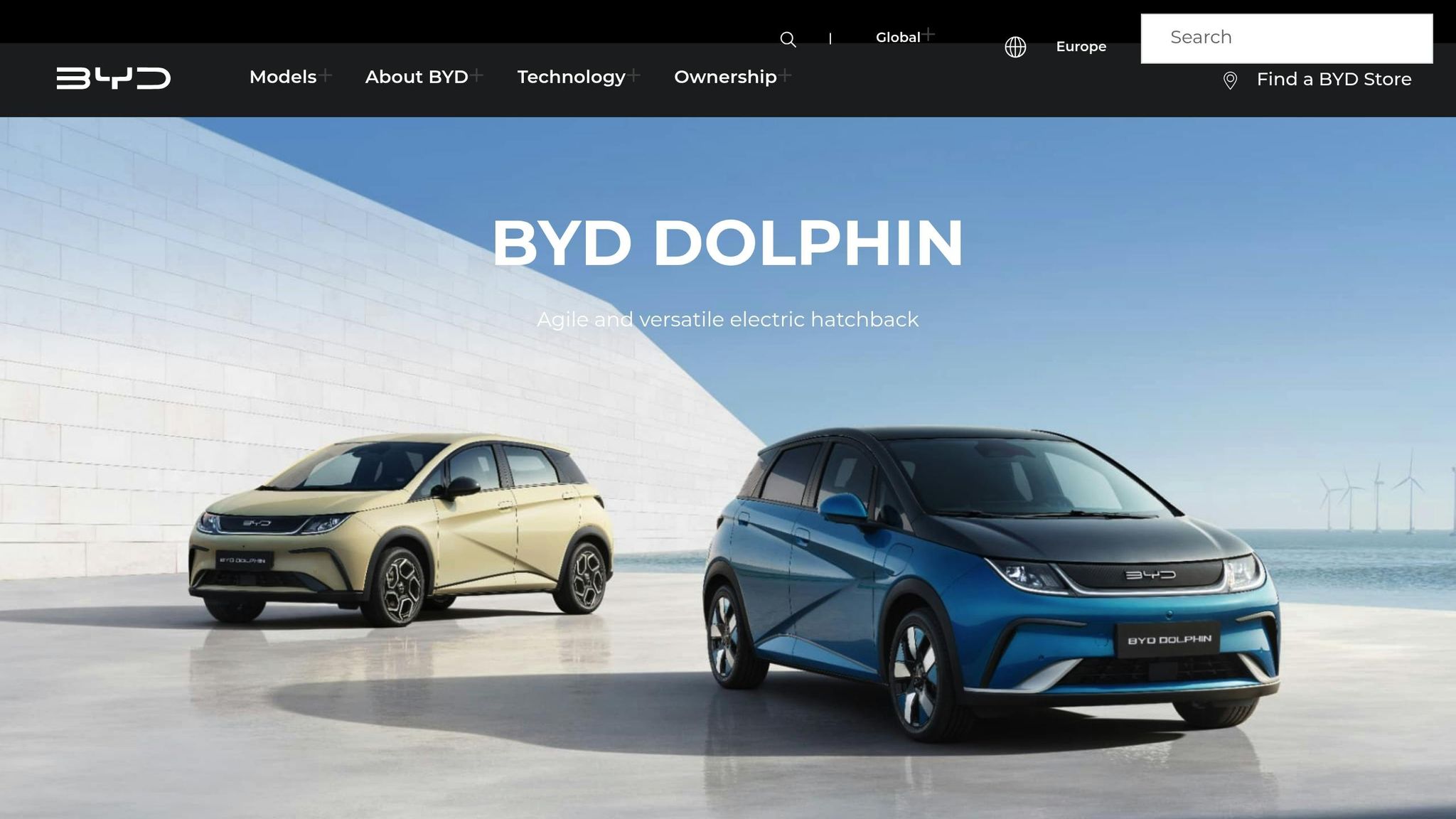
sbb-itb-99e19e3
Pros and Cons
Looking at the earlier discussion on cost, infrastructure, and related factors, it’s clear that choosing between electric and gas-powered vehicles involves weighing distinct advantages and challenges.
Electric vehicles (EVs) stand out for producing zero direct emissions, requiring less maintenance, and offering predictable energy costs – making them a great fit for short trips in urban areas. But the current charging infrastructure is a hurdle. As Cartrack points out, "a petrol or diesel-powered vehicle still gives you more refueling options along the way, unlike EVs." Add power outages into the mix, and EVs can face even more challenges in certain regions.
On the other hand, gas-powered vehicles shine when it comes to convenience. They benefit from a widespread network of fueling stations, allowing for quick and easy refueling – especially useful for long trips or areas where charging stations are scarce and power outages are common. However, their continuous emissions contribute to air pollution, raising concerns about their long-term environmental impact.
| Criteria | Electric Vehicles | Gas Vehicles |
|---|---|---|
| Infrastructure | Limited charging stations; slower charging | Extensive fueling network; quick refueling |
| Load-Shedding Impact | Charging may be disrupted during power outages | Unaffected; fuel is consistently available |
Ultimately, the choice depends on your driving habits and the infrastructure around you. If you mostly drive in cities with accessible charging points, an EV could be a great long-term option. But if you’re often on the road for long distances or live in areas where power outages are common, a gas-powered car might be the more practical pick. Matching the vehicle type to your lifestyle ensures you get the most out of your choice.
Conclusion
Choosing between an electric car and a gas-powered vehicle in South Africa ultimately comes down to your personal needs and circumstances. Electric vehicles bring plenty to the table: no direct emissions, lower maintenance costs, and predictable energy expenses. These features make them a great fit for city driving and shorter commutes. But, challenges like limited charging infrastructure and load-shedding are still hurdles to consider.
On the flip side, gas-powered cars continue to shine when it comes to convenience and reliability, especially during power outages. They’re better suited for long road trips or areas where charging stations are few and far between.
Both options have their strengths, so your driving habits should guide your decision. If your routine mostly involves urban driving and you have access to reliable charging at home or work, an electric car could be a smart, forward-thinking choice. The lower operating costs and environmental benefits make EVs appealing for those aiming for a greener lifestyle.
However, if you often take long-distance trips, live in areas heavily affected by load-shedding, or need the convenience of quick refueling, a gas-powered car might be the more practical pick for now.
As infrastructure evolves, electric vehicles will likely become a more realistic option for a broader range of drivers. For now, focus on what suits your current lifestyle while staying mindful of how future developments could change the equation. The key is to choose a vehicle that works for you today, with an eye toward the possibilities of tomorrow.
FAQs
How does load-shedding affect the practicality of owning an electric car in South Africa?
Load-shedding, those planned power outages, can be a real hurdle for electric vehicle (EV) owners in South Africa. EVs depend on a steady supply of electricity to charge, so when the power goes out, it can throw a wrench in your plans – especially if you don’t have backup options like solar panels or a home battery system to rely on.
Many EV owners find ways to work around this by charging during off-peak hours or syncing their charging schedule with load-shedding timetables. However, this challenge underscores the need to think about your local energy setup before diving into EV ownership. If frequent outages are the norm in your area, investing in alternative energy solutions might be the best way to keep your EV running smoothly.
What are the environmental benefits of electric cars in South Africa given the country’s energy challenges?
Electric vehicles (EVs) hold great promise for cutting greenhouse gas emissions, especially as South Africa gradually shifts toward cleaner energy sources. Right now, the country’s reliance on a coal-heavy electricity grid means that EVs can sometimes have a carbon footprint comparable to, or even higher than, some modern gas-powered cars. However, this is expected to change as renewable energy becomes a larger part of the energy mix.
Looking ahead to 2040, the environmental benefits of EVs in South Africa are expected to grow significantly. A cleaner power grid combined with broader EV adoption will likely lead to a major reduction in their overall environmental impact. Even today, though, EVs bring important advantages: they help reduce urban air pollution and lessen the country’s reliance on imported oil – two critical benefits despite the current energy challenges.
Are there any government incentives for electric car owners in South Africa, and how do they compare to those for gas-powered vehicles?
Currently, South Africa doesn’t have government incentives like tax credits or rebates specifically for electric car owners. That said, there have been talks about introducing measures to promote the adoption of electric vehicles (EVs). One possibility is lowering import duties on EVs, which are currently higher than those for gas-powered cars.
Although no official programs are in place yet, such initiatives could eventually help bring down the cost of EVs, making them more accessible. For now, the price gap between electric and gas-powered vehicles remains a crucial consideration for South African buyers.


